
Sports contain a litany of metaphors for everything inspiring, especially in film. This fact is confirmed in director Todd Randall’s Under The Stadium Lights. The drama, penned by John Collins and Hamid Torabpour, tells the story of the famed high school football team the Abilene Eagles. In 2008, the Eagles were dominating their season (10-0). They would outscore their opponents a total of 488 to 124 that season, only to blow it royally in the first round of the state championships.
Because the loss was mentally and emotionally draining, the team’s chaplain Chad Mitchell (Milo Gibson), pressed upon the players the Biblical concept of “Brother’s Keeper.” The idea being that the team is a team both on and off the field, and just as they have one another’s back in the game, they must have one another’s backs in real life. Chaplain Mitchell tells the players that the locker room is a safe space to tell their stories that they can’t say on the outside.
The first players to step up are brothers Ronnell (Carter Redwood) and Herschel (Acoryé White) Sims. Their grandmother is raising them as their father is a drug addict, and their mother was just incarcerated for parole violations. Then have Augustine “Boo” Barrientes (Germain Arroyo) speaks. He struggles between following the straight and narrow or going the route of his brother and join a gang. As their home life puts pressure on their personal and school life, the three have each other.
There are adults on the sideline to help. Chaplain Mitchell brings spiritual leadership and is there for all the players. The long hours take Mitchell’s precious time away from his frustrated wife, Ashley (Abigail Hawk), and daughter Lexi (Iris Seifert). Another caring adult is Harold Christian (Laurence Fishburne), the team’s adopted father and local town celebrity as the owner of Harold’s BBQ.
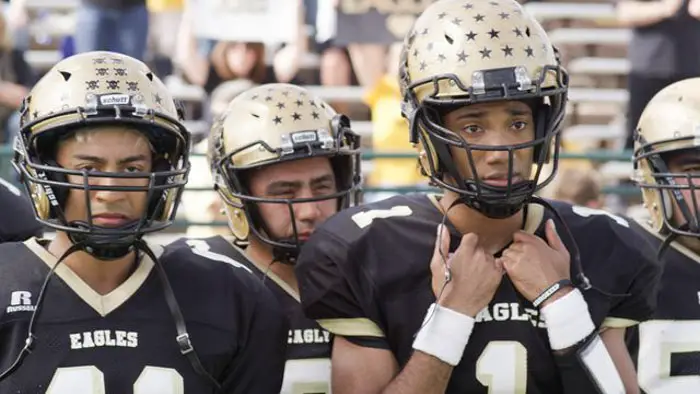
“…just as they have one another’s back in the game, they must have one another’s backs in real life.”
For all intents and purposes, Under The Stadium Lights is a slightly grittier faith-based film as it’s based on Chad Mitchell and Al Pickett’s book, Brother’s Keeper. Their story leans into God and Christianity in a way that’s always present and interwoven throughout the narrative but not shoved down your throats. The reality is that the film portrays what we stereotypically understand about this part of Texas in that it’s about faith, family, and football.
Like any faith-based film, the story is incredibly melodramatic and hopeful, which will probably turn off the hardcore non-believing cynic. In fact, it will probably piss off a lot of cynics with hints of the story’s “white savior” vibe. Look, with the way the world is going, hope is something we could all use, and the movie presses hard on the idea of having each other’s backs regardless of social, economic, or racial backgrounds. Save for a more considerable debate.
The only real downside is that it’s incredibly predictable. If you’ve seen as many faith-based or Hallmark movies as I have, all the expected beats are here. Though, unlike a faith-based film, Under The Stadium Lights is willing to go dark with its subject matter, violence, and language. As it’s a small town underdog story, the ending is right there before the opening credits are over. What do you think will happen to a decimated football team who couldn’t possibly win in the end?
Under The Stadium Lights stands out because of Milo Gibson and Laurence Fishburne. It goes to show that if you want to elevate your independent film, season it with veteran actors, and they’ll raise any script and story, which happens here. In the end, we have a feel-good tale of hope that elevates itself above the typical Hallmark-esque fare.
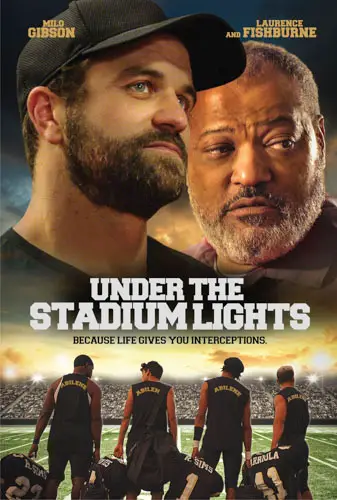
"…elevates itself above the typical Hallmark-esque fare."
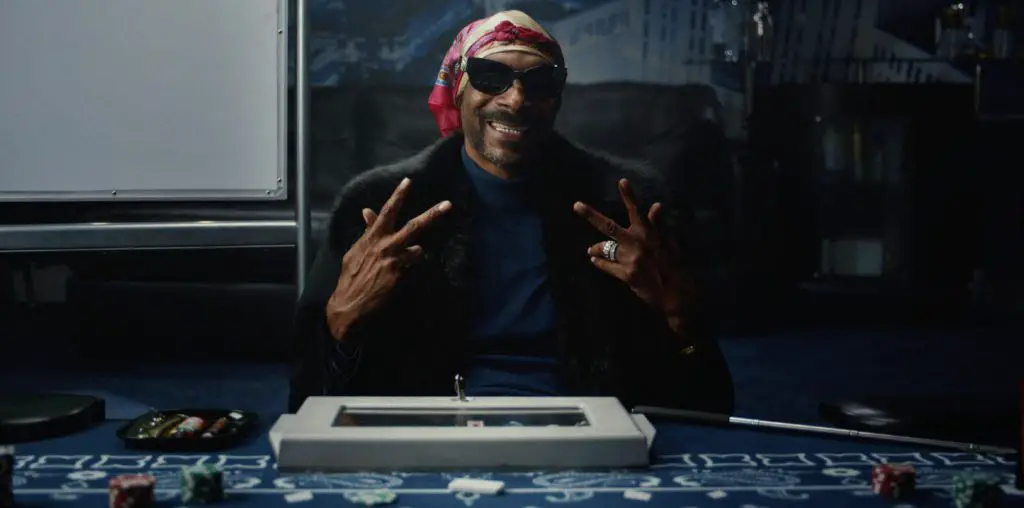
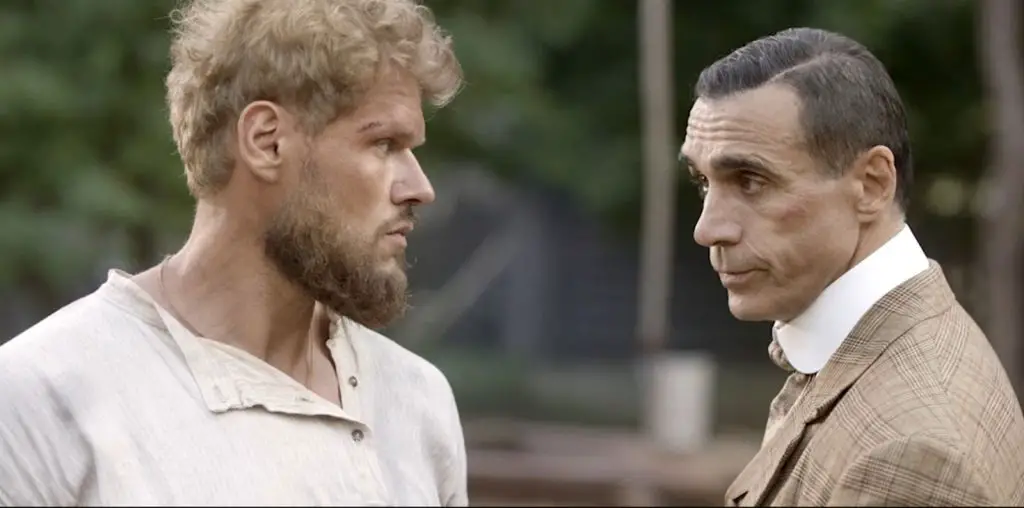
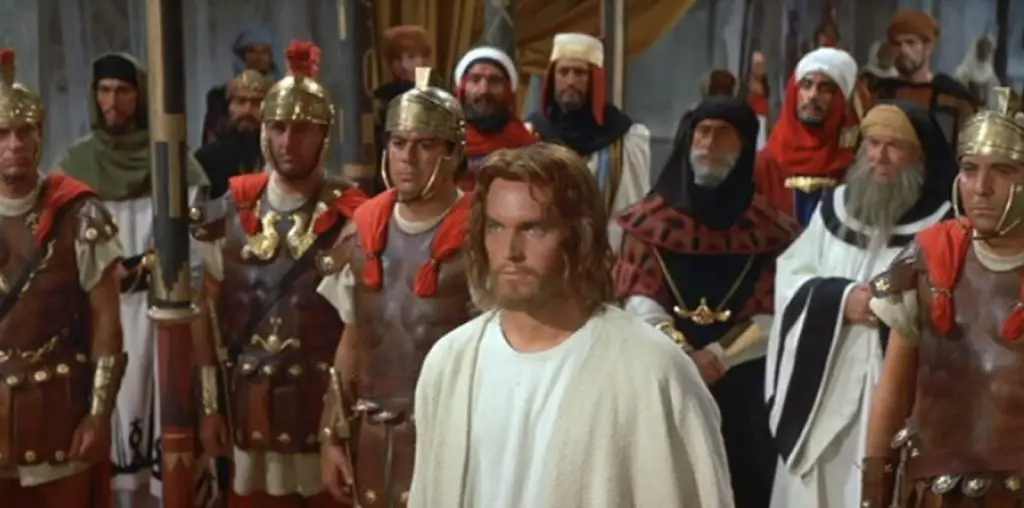
Ronnell & Herschel are cousins NOT brothers. This is fact, and I don’t recall there being a discrepancy in the movie indicating otherwise, except that I also do not recall it mentioned that they were just cousins and not brothers. However, there are separate scenes in which it shows the two living and being raised in separate homes. Ronnell was the one living with his mother, Niecy Sims. It’s his father, Ronnell Sims Sr. (portrayed by Eddie George) that is a drug addict. Herschel Sims is portrayed as living with his grandmother and it is his mother, as portrayed in the early part of the movie, that is locked up for parole violation.
I replayed the first act several times and I couldn’t figure it out. Thanks for the clarification.
Read the book: less mellow dramatic, more inspiring, and more honest. Plus it doesn’t stop halfway through the playoffs.